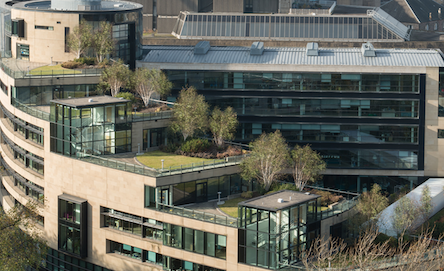Baillie Gifford’s £800 million Edinburgh Worldwide Investment Trust has reported that the fund’s net asset value (NAV) per share fell 23.6% and its share price fell 27.7% over the year to October 31, 2023.
Edinburgh Worldwide’s comparative index, the S&P Global Small Cap Index total return, fell 4.3% in sterling terms.
Edinburgh Worldwide chair chair Henry Strutt said: “We continue to encourage the portfolio managers to focus on smaller entrepreneurial companies, as we believe these are better able to deploy the best in human ingenuity and imagination to embrace disruptive technologies and processes at scale than larger companies who are inevitably hidebound by legacy practices and business models and layers of bureaucracy and hierarchy.
“Nevertheless, the portfolio managers, under close scrutiny of the board, have identified potential improvements to both processes and tactics which should improve the balance of the portfolio.
“These include being more rigorous in recognising stocks that have had a good run and taking profits where appropriate, and being more ruthless in addressing issues in the tail of the portfolio where the portfolio managers may have tended in the past to err on the side of patience.”
Edinburgh Worldwide’s fund managers are Douglas Brodie, Svetlana Viteva and Luke Ward.
Edinburgh Worldwide recently announced big changes to its board. Private equity expert Jonathan Simpson-Dent will soon succeed Strutt as chairman and entrepreneur Jane McCracken will succeed Helen James as the fund’s senior independent director.
“Despite the fall in NAV, a number of investments delivered positive performances over the period,” said Edinburgh Worldwide.
“Stand-outs included: Exact Sciences, a provider of non-invasive molecular tests for early cancer detection; Axon Enterprises, a law enforcement equipment and software provider; and, Space Exploration Technologies (SpaceX), which designs, manufactures and launches advanced rockets and spacecraft.
“Among those investments which contributed to the overall decline in NAV were: Novocure, a manufacturer of medical devices for cancer treatment; Alnylam Pharmaceuticals, a drug developer focused on harnessing gene silencing technology; and, Staar Surgical, which offers ophthalmic implants for vision correction.
“Given its growth company focus, the company aims to generate significant returns over the long term primarily through capital appreciation rather than dividends.
“The net revenue return per share was a negative 0.65p per share and therefore no final dividend is being recommended.
“Should the level of underlying income increase in future years, the board will seek to distribute the minimum permissible to maintain investment trust status.
“Over the course of the financial year, the company undertook 76 buybacks, buying back 5,190,382 shares for treasury. A further 1,710,933 shares have been bought back for treasury since the period end.
“As an Investment Trust, the company is able to deploy leverage where it sees opportunities to enhance returns, as was the case in the course of the past financial year.
“As a result, invested equity gearing stood at +14.1% of shareholders’ funds at the financial year end (2022 – +12.3%) and is currently +12.6%.
“One of the unique features of EWIT’s strategy, compared with other growth investment vehicles, is its ability to spot and invest in private companies many of which are, in the view of the manager, better equipped, culturally and structurally to exploit new innovations at scale.
“As at the year end, the company held fourteen private companies accounting for 26.0% of total assets (2022 – 20.1% of total assets in fourteen companies).
“No new private company investments were made during the year although follow-on investments were made in SHINE Technologies and Astranis Space Technologies, companies, which in the view of the Managers show strong potential.
“There are currently still fourteen private companies held accounting for 25.8% of total assets.”
Edinburgh Worldwide’s marketing material said it aims for capital growth from a global portfolio of “initially immature entrepreneurial companies” typically with a market capitalisation of less than $5 billion at the moment of initial investment, which are believed to offer long-term growth potential.
The fund’s biggest recent investments have included Space Exploration Technologies, Alnylam Pharmaceuticals, PsiQuantum, Ocado, Exact Sciences, AeroVironment, Oxford Nanopore Technologies, Zillow, STAAR Surgical, MarketAxess and Axon Enterprise.
The fund said its share price discount to NAV ranged between 6% and 23.6%, averaging 17%, and ended the period at a 17.4% discount.
“While this is not significantly out of line with the investment trust sector as a whole, where weighted average discounts of the AIC Global and AIC Global Smaller Companies sectors ended the period at 13.1% and 17.3% respectively, we recognise that is little comfort to our investors, when one takes into account the fact that the negative absolute returns of the past two financial years have erased the positive relative and much of the absolute returns that had been achieved since the broadening of the company’s investment remit approved by shareholders at the 27 January 2014 Annual General Meeting.”
Edinburgh Worldwide chair Henry Strutt added: “Current market conditions, which have been characterised by extreme volatility, short-termism and risk aversion have meant these are seriously testing times for long-term, conviction-based investors.
“However, while we should not dismiss the impact on our shareholders of the recent setbacks in performance, we are reassured by the fact that the underlying operational performance of our portfolio has been strong.
“There are increasing signs that we are at the top of the interest rate cycle and the reduction in risk appetite we have seen recently is starting to unwind.
“While we cannot be complacent or assume that recovery in valuations will be a straightforward or immediate process, we see early signs of improvement and genuine prospects for robust returns as conditions normalise over time.”
